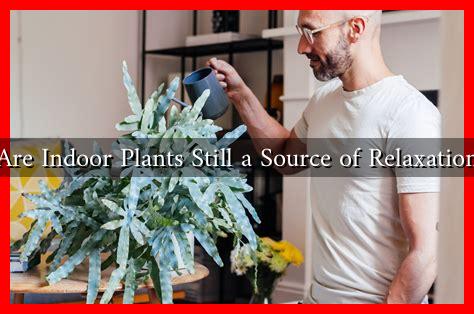-
Table of Contents
Are Indoor Plants Still a Source of Relaxation?
In recent years, the trend of incorporating indoor plants into home and office spaces has surged, driven by a growing awareness of their aesthetic and psychological benefits. But the question remains: are indoor plants still a source of relaxation in our fast-paced, technology-driven world? This article explores the calming effects of indoor plants, supported by research, statistics, and real-life examples.
The Psychological Benefits of Indoor Plants
Numerous studies have shown that indoor plants can significantly enhance mental well-being. The presence of greenery in our living spaces can lead to reduced stress levels, improved mood, and increased productivity. Here are some key psychological benefits:
- Stress Reduction: A study published in the journal Environment and Behavior found that individuals who interacted with plants experienced lower levels of stress and anxiety.
- Enhanced Mood: Research from the University of Hyogo in Japan indicated that indoor plants can elevate mood and promote feelings of happiness and relaxation.
- Increased Focus: A study by the University of Exeter revealed that employees in green office environments were 15% more productive than those in non-green settings.
How Indoor Plants Promote Relaxation
Indoor plants contribute to relaxation in several ways, creating a serene environment that fosters tranquility. Here are some mechanisms through which they achieve this:
- Air Quality Improvement: Many indoor plants, such as the peace lily and snake plant, are known for their air-purifying qualities. Cleaner air can lead to better overall health and a more relaxed state of mind.
- Connection to Nature: Bringing nature indoors helps bridge the gap between urban living and the natural world. This connection can evoke feelings of calm and contentment.
- Mindfulness and Care: Caring for plants encourages mindfulness, as it requires attention and presence. This practice can serve as a form of meditation, promoting relaxation.
Case Studies and Real-Life Examples
Several organizations and individuals have embraced the use of indoor plants to enhance relaxation and well-being. Here are a few notable examples:
- Google: The tech giant has incorporated biophilic design into its offices, featuring numerous indoor plants. Employees report feeling more relaxed and focused, contributing to a positive work culture.
- Hospitals: Many healthcare facilities have started integrating plants into patient rooms and waiting areas. Research shows that patients with views of greenery experience less pain and anxiety.
- Homeowners: A survey conducted by the National Gardening Association found that 80% of indoor gardeners reported feeling more relaxed and happier in their homes due to the presence of plants.
Statistics Supporting the Benefits of Indoor Plants
Statistics further reinforce the idea that indoor plants are beneficial for relaxation:
- According to a study by the University of Queensland, indoor plants can reduce stress levels by up to 37%.
- The American Society of Horticultural Science found that indoor plants can improve concentration and memory retention by 20%.
- A survey by the National Gardening Association revealed that 90% of indoor gardeners believe that plants improve their mood.
Conclusion: The Lasting Impact of Indoor Plants
In conclusion, indoor plants continue to be a significant source of relaxation in our modern lives. Their psychological benefits, ability to improve air quality, and capacity to foster a connection with nature make them invaluable additions to our homes and workplaces. As we navigate the complexities of contemporary living, the calming presence of indoor plants serves as a reminder of the simple joys that nature can bring. Whether you are a seasoned plant enthusiast or a newcomer to indoor gardening, incorporating greenery into your space can lead to a more relaxed and fulfilling life.
For more information on the benefits of indoor plants, consider visiting the Plant Life website, which offers resources and insights into the world of plants and their impact on our well-being.

